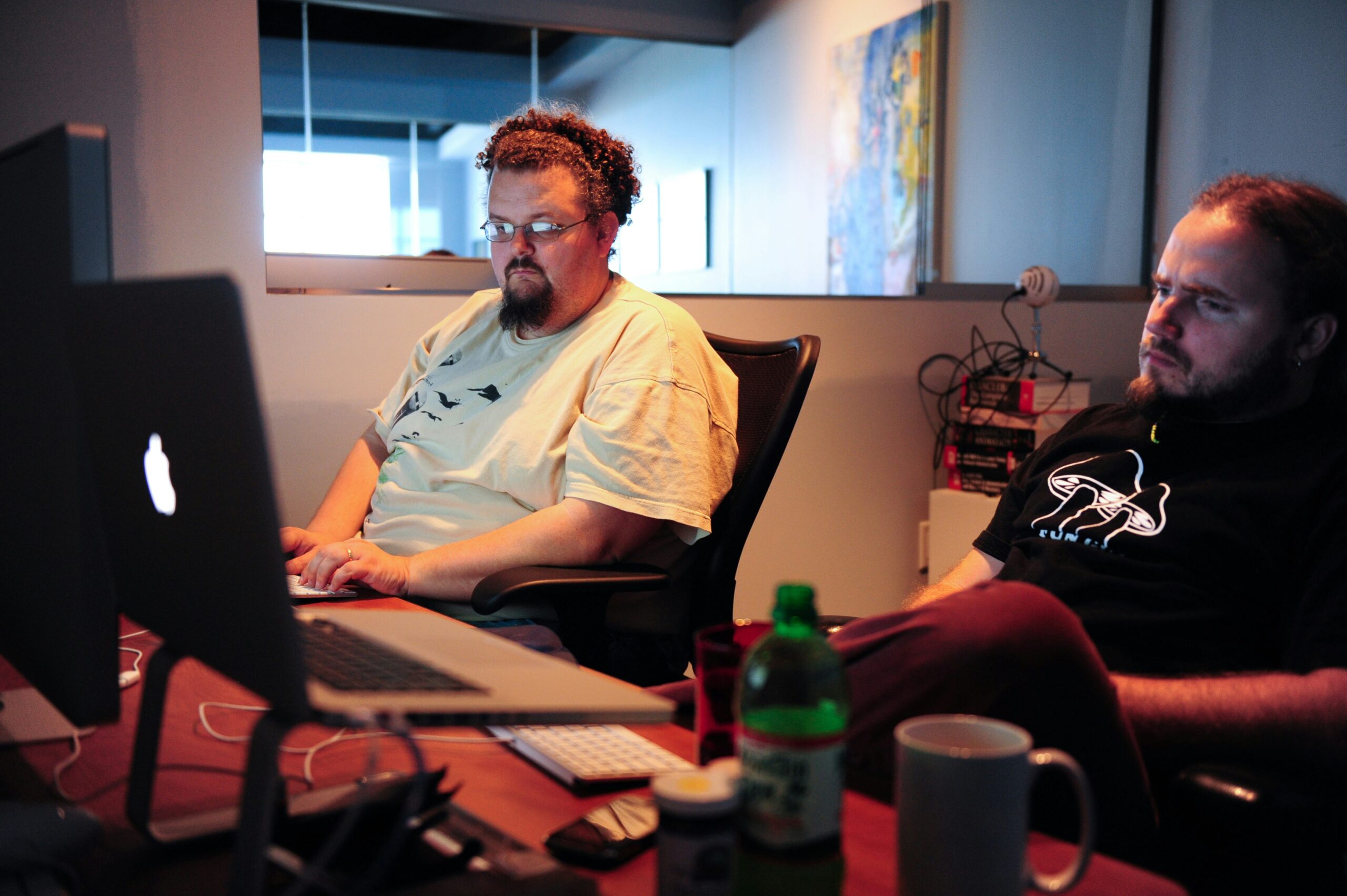Introduction to Imposter Syndrome
Imposter syndrome is a psychological pattern where individuals doubt their accomplishments and have an internalized fear of being exposed as a “fraud.” Despite evident success, those experiencing imposter syndrome often attribute their achievements to luck or external factors rather than their own capabilities and efforts. This pervasive condition impacts a wide range of professionals, including many famous programmers who have significantly influenced the tech industry.
Common symptoms of imposter syndrome include chronic self-doubt, fear of not living up to expectations, and a sense of intellectual fraudulence. These feelings can lead to stress, burnout, and diminished self-confidence, creating a substantial barrier to personal and professional growth. This syndrome is particularly prevalent in fields where rapid advancements and continuous learning are the norms, such as technology and programming.
High achievers and successful individuals in tech are frequently affected by imposter syndrome. The pressure to innovate and the persistent comparison with peers often compound these insecurities. Renowned programmers, despite their groundbreaking contributions, may still grapple with feelings of inadequacy. Addressing and overcoming imposter syndrome is crucial not only for the well-being of these professionals but also for the advancement of the tech industry as a whole.
The impact of imposter syndrome stretches beyond individual mental health. It can limit career progression, stifle creativity, and hinder the ability to seize new opportunities. Encouraging open conversations about these experiences and implementing supportive measures can help mitigate these negative effects. By sharing success stories of famous programmers who have conquered imposter syndrome, we aim to inspire and foster resilience within the tech community.
The Struggle of Ada Lovelace: The First Programmer
Ada Lovelace, often acknowledged as the first computer programmer, holds a seminal place in the annals of computing history. Her work on Charles Babbage’s Analytical Engine in the 19th century laid foundational concepts for modern computing. Despite her monumental achievements, Lovelace grappled profoundly with self-doubt and what is today recognized as imposter syndrome.
Lovelace’s struggle with imposter syndrome was emblematic of the societal constraints placed on women in her era. Known for her adept analytical skills and mathematical prowess, she often faced skepticism from contemporaries, who doubted her capabilities simply because she was a woman. In her extensive correspondence with Babbage, she referred to her ideas as “unproven theories,” indicative of her ongoing self-questioning and insecurity.
Despite her inner battles, Lovelace’s contributions were nothing short of groundbreaking. In her notes on the Analytical Engine, she developed what is now seen as the first algorithm intended for a machine, recognizing the potential for such a device to go beyond mere calculation. She envisioned a future where machines could perform complex tasks, a foresight that was revolutionary for her time.
Lovelace managed to overcome these challenges through a combination of intellectual rigor, passion for her work, and supportive relationships. One of her notable quotes, “That brain of mine is more than merely mortal; as time will show,” captures her relentless belief in the potential of her intellect, despite her doubts. In many ways, her friendship with Babbage provided both a sounding board and a source of validation, reinforcing her self-worth and contributions.
By persevering through her self-doubt, Lovelace not only cemented her status among famous programmers but also left an indelible mark on the world of technology. Her story serves as an enduring testament to overcoming personal insecurities and pushing intellectual boundaries.
Grace Hopper: The Queen of Code and Her Self-Doubt
Grace Hopper, a trailblazer in computer science, made significant contributions to the field of programming. Known as the “Queen of Code,” she is credited with inventing the first compiler for a computer programming language, a groundbreaking advancement that paved the way for modern programming. Despite her remarkable achievements, Hopper, like many famous programmers, encountered moments of profound imposter syndrome throughout her career.
Despite earning numerous accolades and honors, including the Presidential Medal of Freedom, Hopper often grappled with feelings of inadequacy. She feared her successes were merely a result of luck or timing rather than her own expertise and hard work. This internal struggle is a sentiment many in the tech community share, making Hopper’s experience both relatable and inspiring.
One of the key strategies Hopper employed to navigate her self-doubt was her unwavering commitment to continuous learning and innovation. She believed in the power of curiosity and maintained that one should always strive to learn something new, regardless of how much experience one might have. Hopper’s commitment to lifelong learning served as both a coping mechanism and a source of empowerment, enabling her to break barriers and challenge the status quo consistently.
Another significant approach Hopper used to overcome imposter syndrome was cultivating a strong support system. Whether through mentorship or collaboration with her peers, she sought and provided guidance, fostering an environment where ideas could flourish without fear of judgment. Such networks not only validated her capabilities but helped to reinforce her belief in the value of her contributions.
Grace Hopper’s journey serves as a powerful testament to how even the most famous programmers are not immune to self-doubt. Yet, through relentless pursuit of knowledge and the support of a community, individuals can transcend these feelings and leave an indelible mark on their fields. Hopper’s legacy as a pioneering computer scientist is an enduring reminder of the importance of resilience and the pursuit of excellence in overcoming imposter syndrome.
Mitchell Baker: Navigating Success and Self-Doubt
Mitchell Baker, the co-founder of the Mozilla Project and Chairwoman of the Mozilla Foundation, stands as a testament to the resilience required to lead in the tech industry. Despite her significant achievements, Baker’s journey has not been devoid of self-doubt and the gripping phenomenon of imposter syndrome. As a key figure in propelling the Mozilla Firefox browser into the market, Baker grappled with the challenges of leadership in a burgeoning open-source initiative. This pressure was compounded by the inherent responsibility of inspiring and directing a diverse team of developers and contributors.
In various interviews and public statements, Baker has been candid about the internal battles she faced. She described moments of questioning her capability and feeling the weight of expectations from the tech community and beyond. “There were moments when I doubted whether I was the right person to lead such a critical project,” Baker admitted in an interview. However, she also emphasized the importance of a support network in mitigating these doubts. Her reliance on close colleagues and mentors provided a sounding board that helped recalibrate her perception of her own abilities.
Baker’s strategy for overcoming imposter syndrome involved a blend of self-reflection, professional feedback, and continuous learning. She advocated for the necessity of breaking down monumental tasks into manageable steps, thus preventing the sense of being overwhelmed. Engaging in self-reflection enabled her to recognize and celebrate smaller successes, gradually building confidence. Professional feedback, received through constructive criticism and validation, further helped Baker manage her self-doubt. By maintaining an attitude of continuous learning, she ensured that her skill set evolved in pace with the demands of her role, reinforcing her sense of competence.
Mitchell Baker’s story is a powerful example of how even the most successful programmers can wrestle with and triumph over imposter syndrome. Her experiences underscore the vital role of resilience, support networks, and adaptive strategies in navigating the complexities of leadership and self-perception in the tech industry.
The Inspirational Journey of Sundar Pichai
Sundar Pichai, currently the CEO of Alphabet Inc. and Google, stands as a beacon of inspiration for aspiring technologists around the globe. Born in Madurai, India, Pichai’s rise to one of the most powerful positions in the tech industry was marked by perseverance, innovation, and a continuous struggle with imposter syndrome. Despite an illustrious career that included leading pivotal projects like Google Chrome, and later managing products such as Android and Google Drive, Pichai has openly discussed feeling like he wasn’t capable or deserving of his successes at various points in his journey.
Coming from a humble background, Pichai completed his undergraduate studies in metallurgical engineering at IIT Kharagpur, before moving to the United States to pursue a graduate degree in material sciences and engineering from Stanford University, and later an MBA from the Wharton School of the University of Pennsylvania. The transition from his roots in India to the high-stakes environment of Silicon Valley undoubtedly contributed to his experiences of self-doubt, a core aspect of imposter syndrome.
Through all these phases, Pichai relied heavily on certain strategies and support systems to overcome these insecurities. One crucial approach was his ability to focus on learning and growth. He cultivated a mindset centered on continuous improvement rather than on innate ability. This reframing helped shift his perspective from one of inadequacy to that of a lifelong learner. Additionally, Pichai received substantial support from mentors and peers who provided guidance and reinforced his belief in his capabilities.
Moreover, Pichai’s resilience was bolstered by an unwavering commitment to delivering value through his work. His innovative mindset led to the creation and improvement of products that had a tangible impact on millions of users worldwide. Each successful project helped build his confidence gradually, enabling him to challenge his imposter syndrome more effectively.
Sundar Pichai’s journey illustrates that even famous programmers are not immune to self-doubt but can successfully navigate and overcome it. His story serves as a powerful reminder that imposter syndrome can be defeated through continuous learning, seeking support, and focusing on tangible achievements.
Elena Silenok: Entrepreneur, Engineer, and Overcoming Self-Doubt
Elena Silenok, the innovative mind behind Clothia, exemplifies the journey many famous programmers undergo when grappling with imposter syndrome. As a tech entrepreneur and engineer, she ventured into a highly competitive industry, often marked by intense scrutiny and persistent self-doubt. Despite her impressive qualifications and accomplishments, Silenok’s career was not devoid of challenges, especially those rooted in a pervasive sense of self-doubt.
During the formative years of her career, Silenok frequently questioned her own abilities. She recounts episodes of feeling like an imposter, a common sentiment among many in the industry. “There were times,” she admitted in an interview, “when I wondered if I was truly capable of leading a tech company or if my successes were just a series of fortunate events.” This sense of inadequacy was often exacerbated by the absence of diverse role models in tech, which made her achievements seem all the more isolated and unrepeatable.
Despite these internal battles, Silenok pushed forward. She adopted a multi-faceted approach to overcoming her imposter syndrome, which included cognitive behavioral strategies and fostering a supportive professional network. One of the pivotal steps she took was reframe her thought processes, shifting from self-criticism to constructive self-assessment. This mental shift allowed her to focus on her competencies and past successes, rather than her perceived shortcomings.
In addition to individual strategies, Silenok advocated for community and mentorship as invaluable tools in mitigating self-doubt. She emphasizes the importance of having a reliable network of peers and mentors, who can provide both professional guidance and emotional support. “Sharing my anxieties with trusted colleagues and seeking their perspectives was incredibly reassuring,” she noted.
Her efforts paid off as she led Clothia to notable success, solidifying her reputation in the tech industry. Silenok’s journey from self-doubt to self-assurance not only underscores the pervasive nature of imposter syndrome among famous programmers but also serves as an inspiring story of resilience and triumph.
Practical Strategies for Overcoming Imposter Syndrome
Overcoming imposter syndrome, particularly within the demanding field of programming, requires a combination of self-awareness, practical steps, and external support. Implementing the following strategies can significantly aid individuals in managing and ultimately surmounting this pervasive issue.
Firstly, seeking mentorship is a highly effective tactic. Guidance from experienced professionals not only provides technical knowledge but also offers emotional support. Mentors can help demystify the journey of famous programmers who have faced similar struggles, thereby normalizing imposter syndrome and reducing its impact.
Engaging in self-reflection is another vital strategy. By regularly assessing one’s achievements and areas for improvement, individuals can foster a balanced self-view. Keeping a journal to document accomplishments and positive feedback can serve as a powerful reminder of one’s capabilities, thereby countering negative self-perceptions.
Setting realistic goals is crucial. Dividing larger projects into smaller, manageable tasks allows for regular, measurable successes. This helps in maintaining motivation and provides a clearer perspective on one’s progress. Recognizing each milestone achieved, no matter how minor, can help reinforce self-worth and counter feelings of inadequacy.
Building a support network cannot be overstated. Surrounding oneself with peers who understand and validate experiences is essential. Participating in communities, both online and offline, where one can share struggles and triumphs, helps in diminishing the isolating effects of imposter syndrome. Support groups often provide a platform to hear from successful programmers who have navigated similar challenges.
These strategies are endorsed by both psychologists and programming professionals, offering a well-rounded approach to tackling imposter syndrome. By integrating these techniques, individuals can develop a more resilient mindset, ultimately paving the way toward greater confidence and success in their programming careers.
Conclusion: Embracing Your Achievements
In summary, the narratives of famous programmers who have faced and overcome imposter syndrome serve as powerful reminders that doubt and self-critique are universal experiences, irrespective of one’s level of success. These high achievers—from renowned software engineers to influential tech entrepreneurs—have all confronted feelings of inadequacy on their way to remarkable achievements. Their stories exemplify that imposter syndrome is not a sign of incompetence but rather a natural part of striving for excellence.
One crucial lesson drawn from these programmers’ experiences is the importance of acknowledging and celebrating one’s accomplishments. By focusing on their capabilities rather than their perceived shortcomings, these individuals have been able to shift their mindset, allowing them to appreciate their talents and contributions to the field of technology. This self-recognition has played a pivotal role in propelling them toward even greater successes.
Moreover, the journey of overcoming imposter syndrome is significantly eased by the realization that these feelings are shared by some of the most iconic figures in programming. By understanding that self-doubt is a common obstacle, individuals can cultivate greater empathy towards themselves and seek support from peers who might be experiencing similar challenges. This communal approach not only fosters a supportive environment but also strengthens one’s resolve to push through self-imposed limitations.
Ultimately, embracing your achievements involves a conscious effort to balance self-criticism with self-acknowledgment. It is essential to reflect on your progress, value your unique contributions, and understand that perfection is an unrealistic and unnecessary expectation. As you continue your journey in programming, remember that overcoming imposter syndrome is not about eliminating self-doubt entirely but about managing it and leveraging your strengths to forge ahead.
The success stories of these famous programmers underline a vital message: everyone, regardless of their stature, can experience self-doubt, but with resilience, support, and a shift in perspective, overcoming these feelings is entirely attainable. Thus, take pride in your journey and celebrate each milestone as you navigate the ever-evolving landscape of programming.



